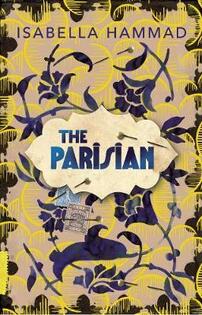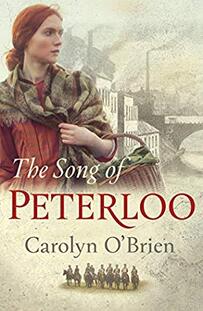The Parisian by Isabella Hammad
While Midhat wonders how to persuade his host to accept him as a prospective son-in-law, Dr Molineu is using his guest as the subject of an anthropological study. When that comes to light, Midhat’s social graces desert him. After insulting a dinner guest, the young man flees to Paris to stay with a man he met on the boat.
In Paris, Midhat experiences his sexual and political awakening, through casual affairs and visits to brothels, and through association with activists working towards the incorporation of Palestine into an independent Syria. But when Midhat returns to Nablus at the end of the war, the Middle East is being parcelled up between the French and the British.
The Palestinian people’s struggle for independence is paralleled by Midhat’s own battle for autonomy. His education complete – albeit not in medicine, as his family assume – he must join the family business and marry a suitable wife. Although four years have passed since they parted, he still yearns for Jeanette.
While Midhat is the novel’s main focus, we zoom out periodically into the perspectives of various of his associates, including freedom fighters, the woman he eventually marries and a French priest who, like Dr Molineu in Montpellier, considers himself an impartial observer of Arab culture. Syrian independence and Zionist immigration feed the fire of Palestinian nationalism, culminating in a six-month general strike. Meanwhile, women discard the veil in the name of modernity, only to don it again as a mark of cultural identity.
Spanning two decades and over 500 pages, Isabella Hammad’s debut is an epic story of the tension between individual and cultural identities, of duty and betrayal, of Empire and Othering, and the recent history of a part of the world where European meddling continues to have repercussions today. Thanks to publishers Jonathan Cape for my review copy.
The Song of Peterloo by Carolyn O’Brien
Samson Wright is clueless about management and manufacturing when he takes over from his recently deceased uncle, and would much prefer to stay at home practising the pianoforte. But meeting Nancy gives him an idea of how he might improve conditions for his child workers, without being ostracised by the other mill proprietors or upsetting his penny-pinching aunt.
When Samson sets up a classroom in the factory, he employs Nancy to help out. This is her opportunity to learn to read, and she embraces the new skill and her new role with great enthusiasm. But her son still goes to bed hungry and, with special needs, probably on the autistic spectrum, she worries for his future: Walter simply isn’t robust enough to survive on the factory floor.
Nancy’s family isn’t the only one suffering from high prices and low wages but hope is at hand in a movement agitating for universal suffrage, albeit only for men. Along with Joseph, a brickie who’s taken a fancy to her, and thousands of others, she practices for a mass rally to take place on August 16th on St Peter’s Field. Although the assembly promises to be peaceful, the rich feel threatened and ready the militia, not only to maintain order but to crush the rebellion before it takes hold.
Published in time for the bicentenary of the Peterloo massacre this year, Carolyn O’Brien’s debut novel is both an engaging story of family, sacrifice and courage, and a homage to a neglected part of British working-class history. Although I learnt about the industrial revolution at school, and could recite the names and dates of the innovations in weaving machinery, I don’t recall being taught about Peterloo. Neither am I aware of having seen it addressed in fiction, other than in Emma Darwin’s The Mathematics of Love.
Another reason I particularly enjoyed this novel, relates to another rarity: like Nelson in my dystopian maybe YA WIP, Snowflake, Nancy’s son Walter has a morbid fear of noise, but is soothed by music. Wanting him to experience history in action, Nancy takes him to St Peter’s Field. Sadly, the expected triumph turns to tragedy, and it’s another thirteen years until large towns like Manchester are represented in parliament, from a franchise limited to property-owning men. (Nevertheless, one in five is an improvement on the small minority who voted in our current Prime Minister, set to send us crashing out of the EU.)
For another novel on a brave woman’s fight for suffrage, see Lissa Evans’ Old Baggage. Thanks to Legend Press for my review copy of The Song of Peterloo. As a tribute to those wretched child-labourers from the past, I’m reviving a 99-word story from a couple of years ago in response to the prompt rattling sound.
Scavenger
“You a simpleton?” the overlooker roared above the rattling machines. I shook my head. But the job wasn’t so scary when Ma explained it.
Dodging his stick, I squeezed into the narrow passageway beneath the loom. Thunder in my ears, nostrils clogged with dust, I gathered the stray strands of cotton from the floor. Slid out again and onto the next.
It was dark when Ma brought me, dark when I limped home. A cough rattling my chest, fear rattling my mind. Aching back, arms, legs; buzzing ears. Rich kids went to school at six, I went to work.























 RSS Feed
RSS Feed





















